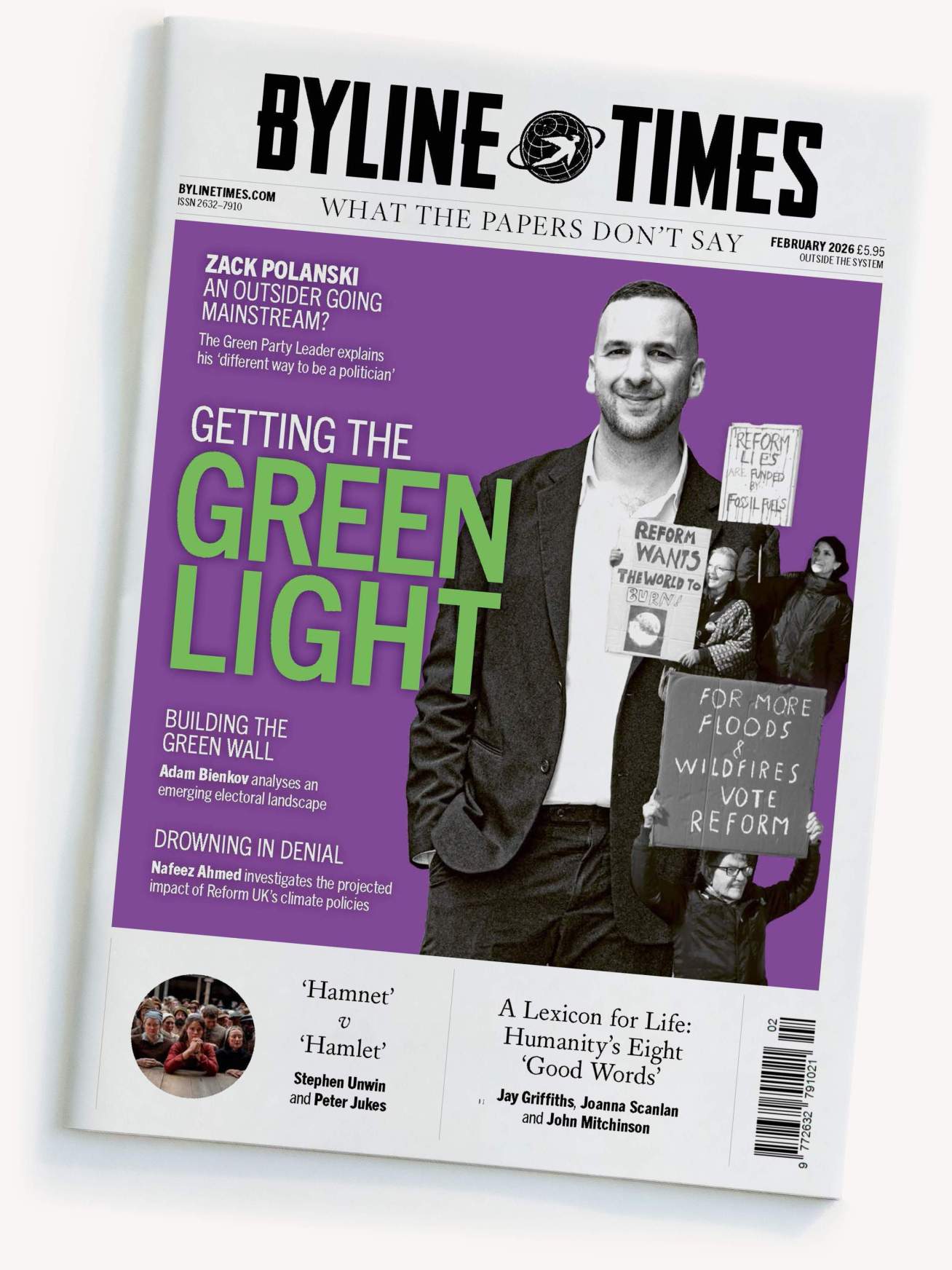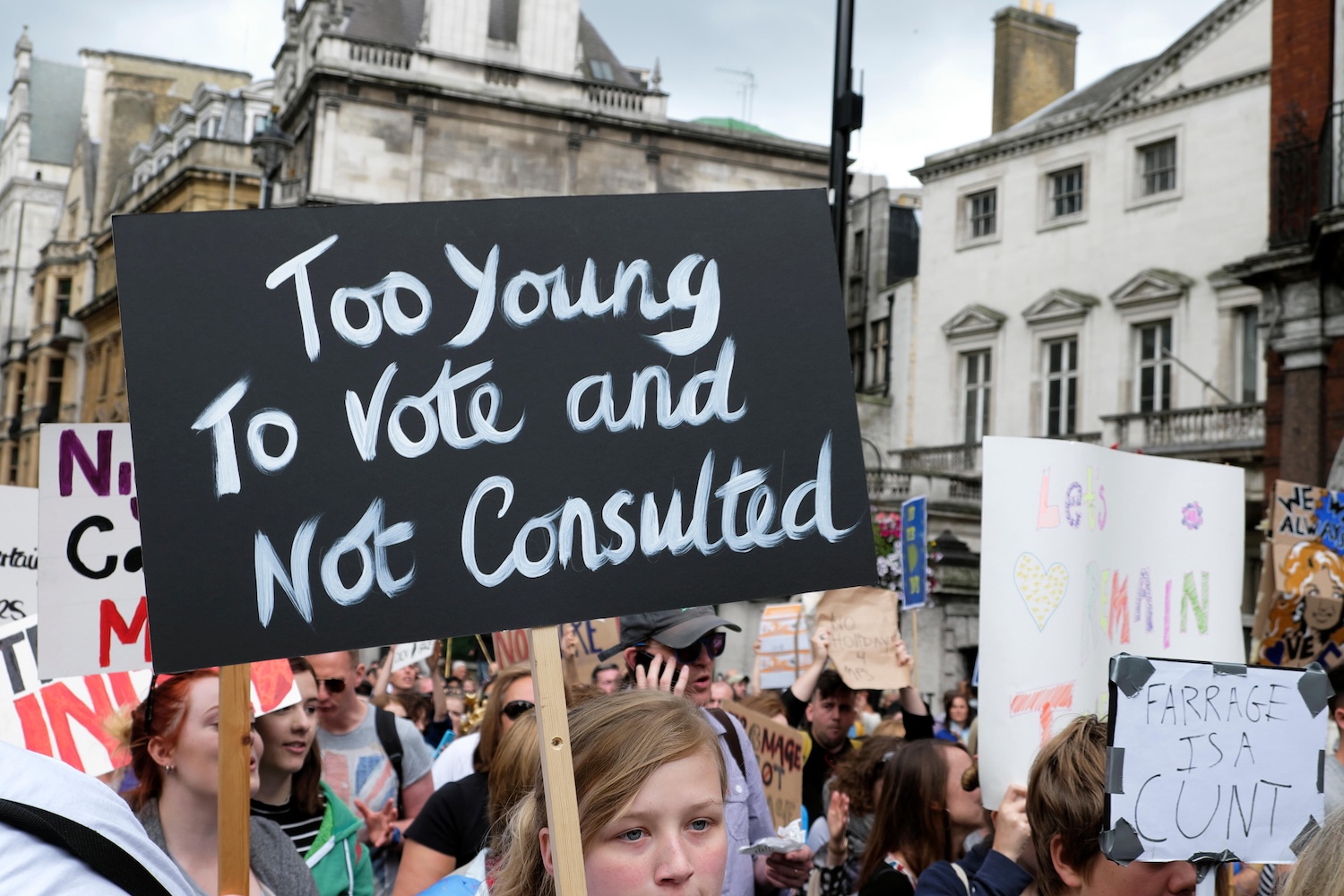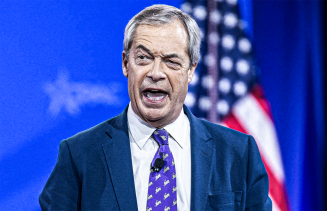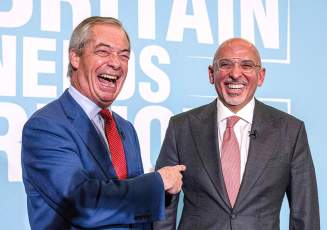
Read our Monthly Magazine
And support our mission to provide fearless stories about and outside the media system
Young people are failing to register to vote because they do not see politics as representing them, or offering anything substantive to their lives, a new report by MPs has warned.
The House of Commons Public Administration and Constitutional Affairs Committee found that eight million people did not register to vote at the last general election, many of whom were young people, contributing to the second lowest voter turnout since universal suffrage was introduced 95 years ago.
The findings come as the Government announces its intention to extend the vote to 16 and 17 year olds for the next general election, expected in 2029 but the report suggests that young people are becoming alienated from politics.
The report finds that half those who failed to register to vote were in 18-24 year old age group and according to Vijay Rangarajan, chief executive of the Electoral Commission, there is a sharp difference between different groups in engaging with the system.
He told MPs: “About half of young people are not on the register and do not think it is important to be on the register. They do not think that engaging in politics is important.”
He added that “the long-term secular decline in the turnout” is coupled with a degree of alienation from the process of voting, from the political system and a feeling of ‘Why vote?’ and seems to come through quite strongly in the public polling… and that is a real concern for us.”
MPs warn in their report: “While it may be uncomfortable for those directly involved in politics and government, the decline in voting risks undermining the authority and legitimacy of government in the UK. Reversing the decline in turnout is a task for the whole of government, Parliament and the wider political system.”
The risk of Voter ID laws further disenfranchising young people is raised by the committee. While there is a very high knowledge among the electorate – as high as 90% – that people need Voter ID , there are still up to 1.9 million who say they were put off from voting because of it at the last general election.
The report says: “When asked in an open format, four per cent gave the requirement to show voter ID as a reason, but when directly asked if voter ID was the reason for not voting, 10% of people gave it as a reason.”
MPs are concerned that when voting is extended to 16 and 17 year olds they will not have adequate ID.
“If a Bill is introduced containing provisions to change the voting age to 16, an analysis needs to be undertaken of what forms of ID people aged 16–17 are most likely to possess, and a plan set out for how the impact of the voter ID requirement on this age group will be mitigated”, the report states.
The report also expresses concern about the workload facing staff organising future general elections because of complex electoral law, the rise in postal voting and a shortage of suppliers of ballot forms.
holding farage to account #reformUNCOVERED
While most the rest of the media seems to happy to give the handful of Reform MPs undue prominence, Byline Times is committed to tracking the activities of Nigel Farage’s party when actually in power
MPs note “the anxieties raised around recruiting and retaining staff, and securing suitable locations for polling stations and counts. We are also aware of concerns around implementation of new measures and technologies, as well as more routine but vital issues such as the stocks of appropriate paper and the readiness and availability of suppliers.”
Conservative Chair of the Public Administration and Constitutional Affairs Committee, Simon Hoare MP, said: “The 2024 General Election was a success but we must not be complacent. I am extremely grateful for all the dedication and hard work carried out by the electoral staff, administrators ,civil servants and ministers. The work they do is vital for upholding our democratic system.
“With that being said, our electoral system is at risk of no longer being able to cope as those running our elections are asked to do more and more. The Government must face up to these issues and ensure we continue to have successful elections in the future. If it does not, the price will be a crisis in our democratic system and that must be avoided.”







